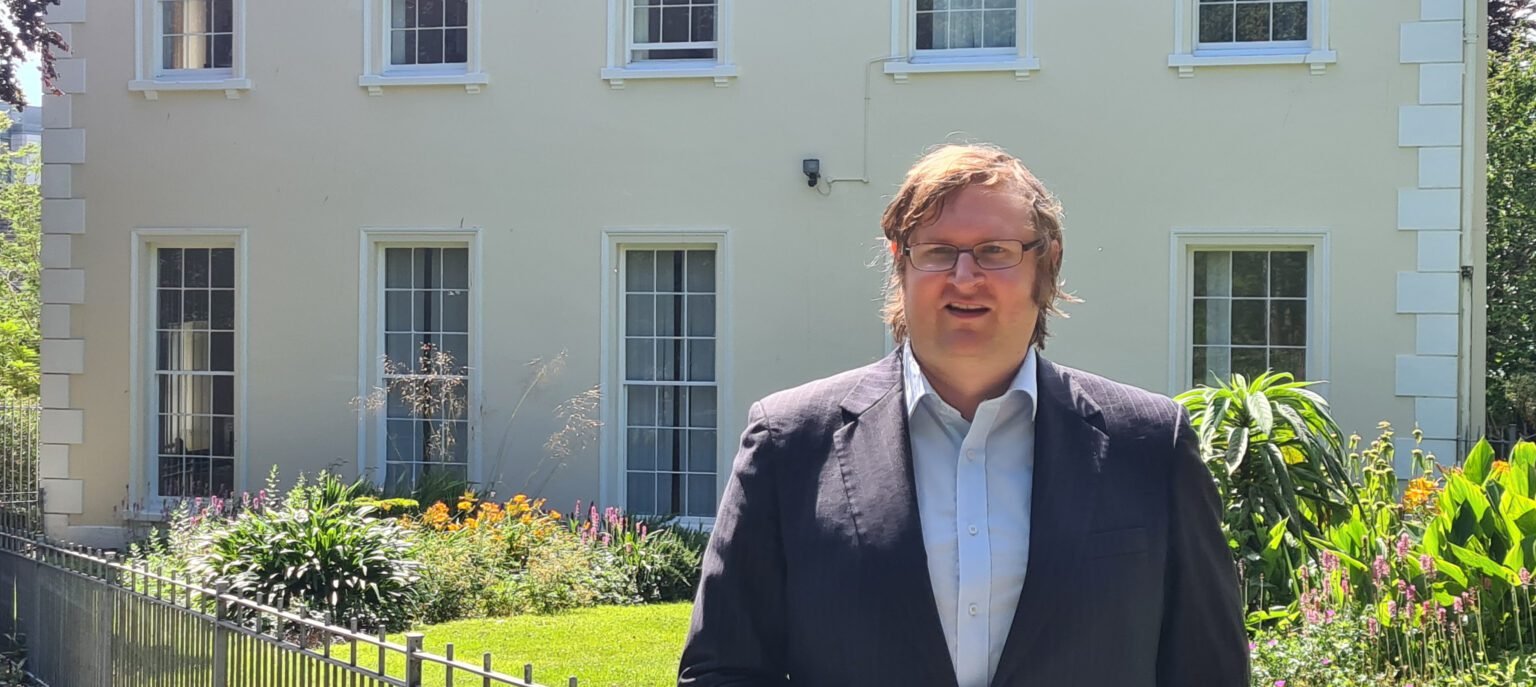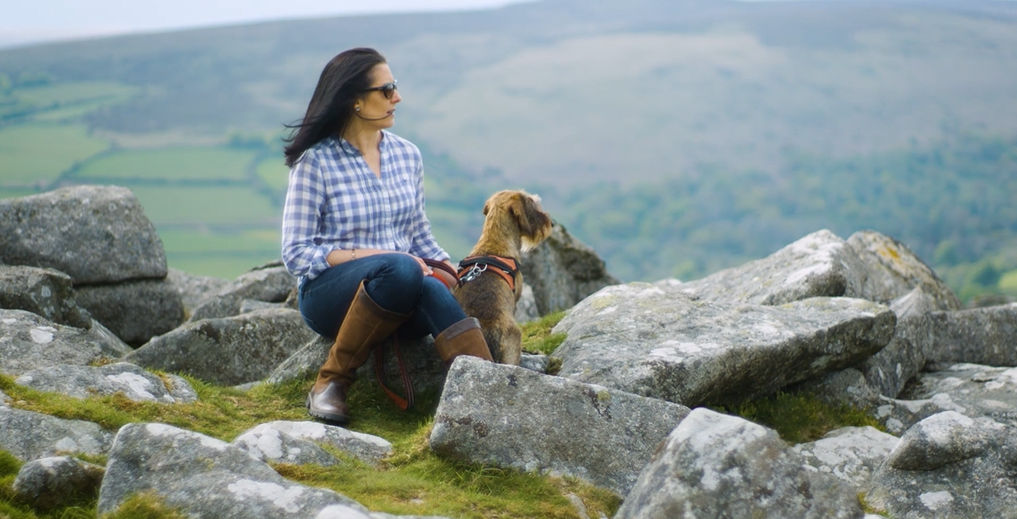Moving to Devon
Written by Nash & Co Solicitors and Stacks Property Finders | 18th September 2021
Living the Devon dream has never looked so appealing, with beaches, moors and tranquil woodlands on our doorstep, plus value for money if you know where to look.
But when you move here from a different part of the country, it’s hard to know where the best place is to live. Everyone you speak to seems to have different suggestions. So rather than simply going by guess work, we thought we’d get some experts on the case.
We spoke to Ed and Grace Jephson of Stacks Property Finders. They have their fingers on the pulse of what’s on the South Hams, Dartmoor and North Devon market (sometimes before it’s on the market) thanks to a bulging little black book of agents and insider know-how. What’s more, the pair know what they’re talking about as they made the move themselves with their young daughter.
Without further ado, over to you, Ed and Grace!
1/ Where’s the best place to start?
We always ask loads of questions to find out what people want: will you need to find work here or will you be working from home? Do you want a good state school or are you going private? Is community key or do you see yourself being remote? Are you boaty or are family walks more your thing? Do you want a morning swim every day or will you be off on the commute?
Try and write down absolutely everything you want from your new life. That way you won’t waste time and are less at risk of falling in love with a property only to have to let it go because it doesn’t meet your needs.
Inside intel: consider not just what you need right now, but try and imagine how your life might be like in ten years’ time and bake that in.
2/ What impact has Covid had on the Devon house market?
The cat is out of the bag in terms of people now being able to work from home, whilst maintaining productivity. In some instances, productivity has even increased! So, if you don’t need to commute, why live in a polluted city where childcare is exorbitant and crime is high when you could live in open countryside or close to the sea? Childcare here is a fraction of what it costs in the big cities and believe it or not, there is always a fantastic hipster coffee house close by and the restaurant scene here rivals any big city.
3/ What’s the best location for commuters?
Anywhere around the A381, including Totnes, Ashburton and towns and villages close to the A38 Devon Expressway which runs between Plymouth and Exeter.
South Devon is warmer and less battered by the storms rolling in across the Atlantic, making it a safe haven for sailors. The harbour towns, such as Salcombe, Dartmouth and Noss Mayo are some of the prettiest destinations on the planet, let alone the county.
Inside intel: trains to London Paddington and Waterloo run half hourly and take just three hours from Plymouth.
4/ What if it’s a toss-up between Cornwall or Devon?
Because it’s so much further from city-life, a move to Cornwall is more like pulling up the drawbridge. You’re talking anything from 6-10 hours by car to London depending on the traffic or a flight from Newquay. Devon is do-able for a weekend. It also has two cosmopolitan cities of Exeter and Plymouth, the M5 and you can get to Bristol in two hours by train. Devon is less rugged but for our money, the villages are prettier and better put together (but don’t tell Cornwall we said that!)
Inside intel: think about who’s most regularly going to be making the trip. If you have kids of university age, Cornwall might mean they come home less while if you do a lot of entertaining, weekending guests may well want to stay longer. That might be a pro or a con, you decide!
5/ Where do you recommend for young families?
Kingsbridge has a year-round community and it’s upmarket without being snooty (though *eek* it doesn’t have a Waitrose!) There are loads of good indie shops in the town and a really good state school, Kingsbridge Community College. (The town was also Devon’s winner in Muddy Stiletto’s Top 200 Best Places to Live.)
Totnes and the surrounding villages, including East Allington, Harbertonford, Blackawton and Cornworthy are all young and happening, plus there are some good pubs and eateries, including the Maltsters Arms at Tuckenhay and a great al fresco cafe at Sharpham Vineyard which is a beautiful place for a walk, right on the edge of the River Dart.
Totnes always reminds us of walking down Portobello Road, with its coffee houses and indie shops, it’s so pretty and higgledy-piggledy. There’s a refreshing lack of materialism too, it’s not flash.
If you want to be on the moors, the year-round community of Moretonhampstead (below) is a bustling little town just within the Dartmoor national park. The National Trust’s Castle Drogo is six miles away and its Green Hill Arts Gallery is fast becoming one of Devon’s most prominent art galleries. There are a couple of coffee shops, three pubs, a bakery and stores. It seems to attract arty cultured types.
Insider intel: if it’s a question of weather, the moors are colder and tend to get snow more often than areas by the coast.
6/ How much to be beside the seaside?
If you want a stand-alone property with parking in the South Hams, you won’t get much change out of 2 million for a panoramic sea view, although if you don’t mind compromising on space, a semi-detached or terrace with a view will set you back anything from £650k.
Estuary views are sought after too: in Dittisham, for example you can expect to pay around the £900k mark for a detached property with a garden.
Local intel: look for somewhere either with parking or a property that comes with a pass for the local car park as during the tourist months it’s always a competition to find a space.
7/ Where is the best value for money?
Purchase a property in a hamlet just 10 to 15 minutes away from the sea and it will shave hundreds of thousands off the price, and you still have it all on your doorstep, and it will be less touristy in summer. So a win-win.
If you don’t mind remote, Bantham, Start Point and East Prawle is unspoilt and a little cheaper than Salcombe and Dartmouth.
Local intel: lanes are narrow and often only wide enough for single-traffic in rural areas, very stressful if you’re stuck behind a tractor or caravan and you’re commuting daily for work.
8/ What makes a good holiday home?
Enough bathrooms or en-suites is key if you want to attract an upmarket holiday crowd. If you’re doing the laundry, a decent-sized laundry as you will need two of each, washing machine and dryer, to do the turnaround, unless it’s a cute one-bed cottage. A boot room and a downstairs shower room where people can get out of wetsuits helps to keep sand confined to one room. A good garden but not too big if you’re doing the maintenance! Parking is always essential in busy coastal towns where it’s hard to find.
Local intel: most holidaymakers want to be within walking distance of a pub and at least one shop for essentials.
9/ Should I be worried about being seen as an incomer?
It’s not something we experienced when we moved from London, it was the opposite with people putting nice notes through the letterbox. Maybe if you moved to a very tight-knit community where houses rarely come up. It helps if you have children as you tend to meet like-minded mums through nursery and school.
From our own experience we would say the South Hams is particularly cosmopolitan and attracts the worldly kind of crowd. Devon is a friendly county that welcomes and actively embraces outsiders.
10/ Should I rent first?
The housing market is going up so if you rent you are not only spending £20k or so on a year’s rent but you may also be pricing yourself out by waiting. The other factor is that if you are looking in the South Hams area, its impossible to find anything as they are rented out as holiday lets and cost four times as much.
But for some people it will still make sense to find something to rent, particularly if you want to try out the area and decide to retain your own home, until you are completely satisfied to sell up and re invest down here.
However, for most people I would always recommend buying and selling in the same market at the same time. Plus, moving twice and living out of storage boxes is exhausting!
A search agent takes away that worry for you, along with endless trawling on the internet, wondering if an area is nice, or if the schools are good. I do all the viewings for clients, and I can video properties, so you only need to come and view a property when you’re sure all the boxes are ticked and it’s the right location for your lifestyle.
Local intel: renting may be less useful if you have kids of school age as it’s unlikely you will want to move them out of the catchment area once they’ve settled in.
Got a burning question for Ed and Grace that we haven’t asked?
Don’t be shy, get in touch! Give Ed and Grace call on 01803 732128 / 07711 724939 or email edjephson@stacks.co.uk at Stacks Property Finders.














